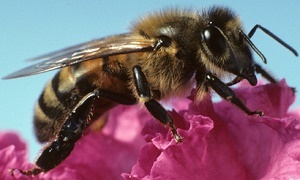A recent report in Entomology Today said honeybees are essential for the world's pollination and crop production, but their colonies have fallen victim in the past decade to mites, viruses and various pesticides.
In several countries in Europe, neonicotinoid pesticides have become the subject of regulatory action, and officials in the United States are considering the same route.
In September, the U.S. Department of Agriculture’s Agricultural Research Service and Mississippi State University tested 42 frequently used pesticides on cotton row crops. They found that 26 of the pesticides killed nearly all of the bees with which they came into contact.
Seven of the pesticides, including glyphosate and one neonicotinoid, killed almost no bees in the tests.
The new data also showed that a number of pesticides are available, including the neonicotinoid acetamiprid, that could control tarnished plant bugs, stink bugs, aphids and mites with limited -- if any -- harm to bees. Consequently, the researchers questioned the logic of putting regulatory measures on neonicotinoids -- and no other pesticides.
It was also found that field spraying insecticides and other pesticides may be killing honey bees, and that the risk to the bees can be reduced by choosing pesticides with lower toxicity in field applications.
“Our data, particularly the ratios of field-application rates to lethal concentrations of each pesticide, provide a quantifying scale to help extension specialists and farmers with pesticide selection to maintain effective control of target pests and minimize the risk to foraging honeybees as well,” the researchers said.
Neonicotinoid pesticides shown to have little effect on honeybee populations




 Alerts Sign-up
Alerts Sign-up